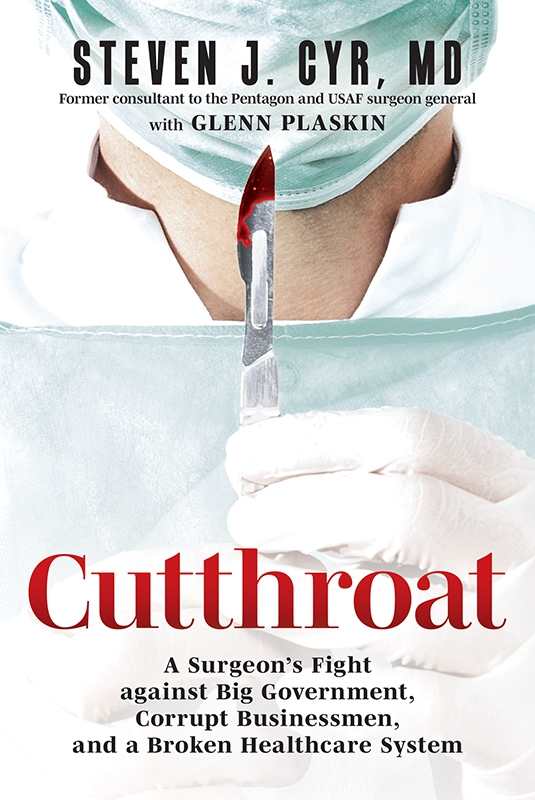Cutthroat
A Surgeon’s Fight against Big Government, Corrupt Businessmen, and a Broken Healthcare System
Cutthroat is an intriguing physician’s memoir that makes passionate arguments against how the health care system prioritizes profit over people.
Steven J. Cyr’s Cutthroat is a thought-provoking memoir about an orthopedic surgeon’s struggles in his field.
After growing up in the Philippines as the child of a military parent, Cyr moved back to the US as a teenager. When the time for medical school arrived, he sought to avoid hefty student loans by getting a scholarship through the US Air Force. As a result, he ended up becoming committed to the military for fourteen years. The period included several deployments to war zones. Over time, as he tried to strike out with his own medical practices and the design of his own implants, Cyr ran into additional difficulties that disillusioned him about his career.
In addition to background on Cyr’s medical pursuits, this detailed book also chronicles a number of legal attacks that Cyr and his wife endured—sometimes because of tangential links to others; sometimes because of accusations from others. An article printed in Forbes is also recorded and called defamatory. Cyr recalls how he and his wife sought to prove their innocence, crediting her meticulous record-keeping in clearing their names. But the book also notes that the process was expensive and upsetting.
Directed at fellow doctors and medical students, this multi-prong text has the flavor of a cautionary tale. Criticisms of the US government, and of insurance companies, for setting the fees for physicians’ services play into its work, as do critiques of the increased wealth for such companies that follow from those efforts, even as doctors and patients suffer because of them. Arguments for modifying or abolishing Anti-Kickback and Stark laws are also made; the book asserts that a physician who makes a patient referral, and who benefits financially as a result, is doing nothing worse than what other business people do. Statistics are used to support such claims, though some are not sourced in a clear manner. Further, some of these arguments blend together as the book meanders through its topics and indulges in tangents.
Some of the book’s characterizations further undermine it, as when a person who was shown to be mentally and emotionally abusive is described as “good”; in a similar manner, while the book calls most doctors honest and decent, its examples (drawn from among the doctors whom Cyr encountered) are roundly negative ones. The indictment of the Philippines for exposing people to drugs, alcohol, and crime is without sufficient nuance, and terms like “socialism” are used in an imprecise way, impeding the persuasiveness of book’s delivery.
Still, Cutthroat is an intriguing physician’s memoir that makes passionate arguments against how the health care system prioritizes profit over people.
Reviewed by
Carolina Ciucci
Disclosure: This article is not an endorsement, but a review. The publisher of this book provided free copies of the book and paid a small fee to have their book reviewed by a professional reviewer. Foreword Reviews and Clarion Reviews make no guarantee that the publisher will receive a positive review. Foreword Magazine, Inc. is disclosing this in accordance with the Federal Trade Commission’s 16 CFR, Part 255.

